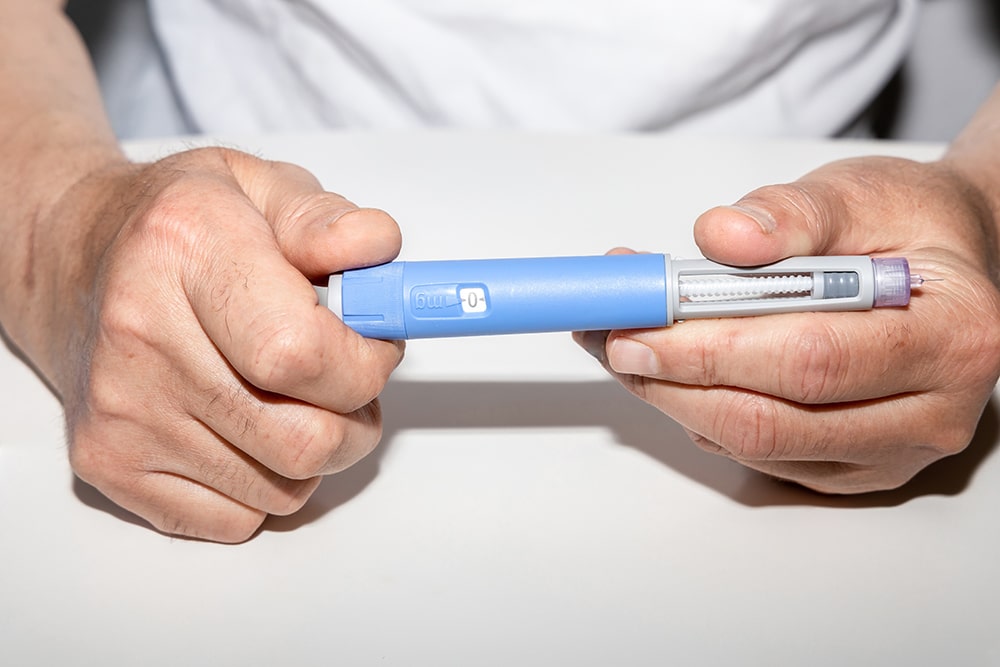New research from the Chartered Institute for Personnel and Development and Simplyhealth, CIPD (2023) Health and wellbeing at work, has revealed a marked increase in sickness absence among UK workers. The figure comes in at 7.8 days per employee per year on average, making it the highest level for a decade and an increase of 2 whole days from the pre-pandemic figure of 5.8 days. Analysis was based on responses from over 900 organisations covering more than 6.5 million employees.
The study reported that mental ill health and stress continue to be among the most common causes of short-term absence. 76% or organisations reported stress-related sick days over the last year, with this figure rising to a staggering 92% in organisations with over 250 employees. Mental ill health, including depression and anxiety, was cited as the top cause of long-term absence.
13 million women in the UK (around a third of the female population) are currently in the perimenopause or menopause stage, with menopausal age women between 45 and 54 making up 11% of the UK working demographic and 23% of all women in employment. With an estimated 14m working days lost every year due to menopause symptoms, it’s highly likely that the menopause is contributing to the statistics in the report whilst being attributed to stress, mental ill health or minor illness (which came in as the top cause of short-term absence). It’s hardly a stretch to surmise that women who are struggling to balance work demands and the physical, psychological and emotional symptoms of perimenopause and menopause may rather not disclose the real reason for their absence due to embarrassment or to the stigma surrounding the subject in the workplace. Interestingly, management style was given as a common cause of stress-related absence in the health and wellbeing at work report.
According to the British Menopause Society, 45% of women reported that menopause symptoms have had a negative impact on their work life, whilst a previous survey carried out by the CIPD with YouGov, found that of those women negatively impacted by menopause symptoms, nearly a third have had to take sick leave, with a whopping 75% left feeling unable to disclose the real reason for their absence, citing privacy, embarrassment and unsupportive management as the top three reasons. The ongoing taboo and lack of proper support in this area could mean more women leaving work at the peak of their careers, impacting both gender diversity at senior management level and gender pay-gap levels.
Contact Bodyline today to find out more about our hormone replacement therapy treatments
There are also grounds for suggesting that UK employers are being silently impacted by psychological menopause symptoms being misdiagnosed as depression and other mental health issues. There are 48 symptoms of menopause, with widely recognised physical symptoms including hot flushes, fatigue, sleep disruption, sore or tender breasts, urgency to urinate and loss of bladder control, headaches, migraines, weight gain and bloating. There are also a whole host of associated mental health symptoms comprising anxiety, depression, brain fog, mood swings, reduced concentration, lack of motivation and loss of confidence, and it is these that are often not properly recognised and wrongly treated.
One of the key findings in the GenM Invisibility Report was the lack of knowledge amongst women themselves surrounding the menopausal symptoms that they are experiencing, with less than 15% of those surveyed naming depression, anxiety or irritability, despite research findings showing that these are in the top ten most debilitating symptoms. The report also stated that 1 in 5 women visit their doctor 6 times before they receive the menopause advice and treatment that they require, another statistic that supports the theory that work absences are being attributed to other reasons than menopause.
Recommendations included in the CIPD report included incorporating staff lifecycle issues into health and wellbeing strategies, promoting flexible working practices and engendering a supportive culture around menopause transition to encourage employees to access the support they need.
Given that it’s harder than ever to get a doctor’s appointment, coupled with the ever-increasing waiting lists for treatment, now is a perfect opportunity for organisations to support menopausal employees by extending their benefits packages and occupational health providers referring women suffering with menopause symptoms to clinical menopause specialists like Bodyline Medical Wellness Clinics for timely and gold standard treatment and support.
Sally-Ann Turner, Managing Director and Founder of Bodyline, has this to say:
“Menopause is not an illness and should not be treated like this in the workplace, it is a stage of a female’s life where extra support and treatment may be required to address symptoms. Symptoms can start in a woman’s mid 30s in perimenopause and continue well into mid 50s.
“We should start by treating the root cause of the symptoms and providing support through the menopause journey. Every woman’s experience of the menopause is different and a blanket standardised approach to treatment and support will not yield quantifiable benefits for organisations or deliver a step change in health and wellbeing of the menopausal employee. Menopause should be on every organisation’s business agenda.”















